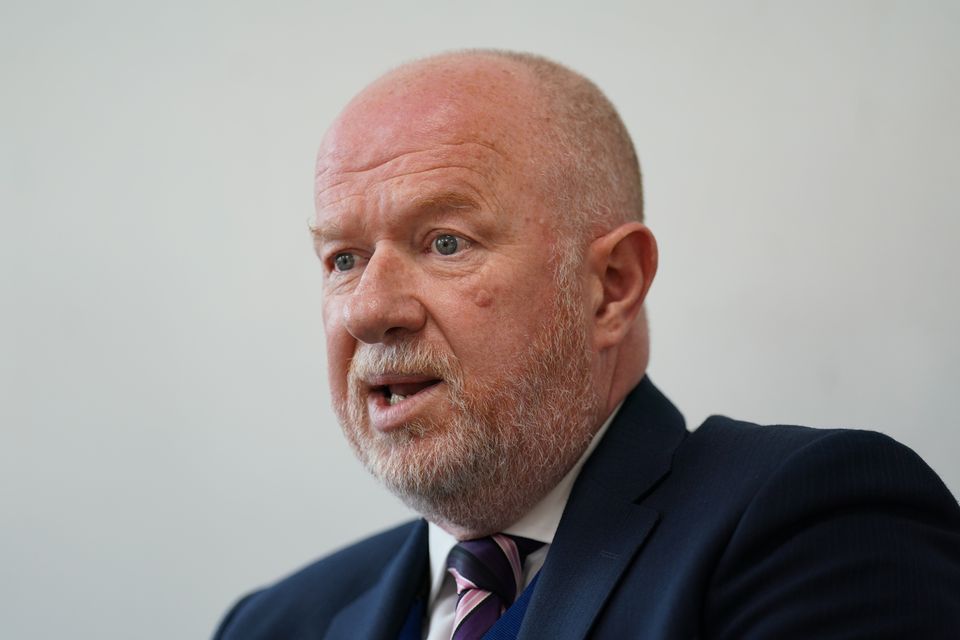An outdated formula used to calculate police funding means rich forces get richer while poor forces get poorer, the head of a watchdog has said.
His Majesty’s Chief Inspector of Constabulary Andy Cooke said while the total government funding settlement for police next year is fair, money is not fairly spread between individual forces.
Council tax is set to increase by almost £330 million to fund policing across England and Wales next year, the government announced on Tuesday.
Ministers have set out a provisional 3.5% real-terms increase in funding for forces, but a third of the total £986.9 million package depends on council taxes increasing by £14 for the average Band D house.
Andy Cooke is His Majesty’s Chief Inspector of Constabulary and former chief constable of Merseyside Police (Kirsty O’Connor/PA)
Mr Cooke said some inner city forces with higher levels of serious crimes are left with fewer resources because housing stock is worth less in their area.
He went on: “The police funding formula is an anachronism. It’s not been updated for a long time.
“What it results in, because there is such a reliance on council tax now, (is) the richer police forces get richer, the poorer police forces get poorer.
“So those who can’t raise as much on council tax, which is usually but not in totality the inner city areas – Cleveland, Merseyside, Manchester, West Midlands – don’t have that housing stock that pays big money.
“In order to address some of the issues the government would like to address in relation to knife crime, violence against women and girls, the bulk of those occur in the inner city areas where you’ve got less resources.
“There are numerous financial issues, but there have been the same issues for many years because the police funding formula hasn’t been properly addressed and doesn’t fairly allocate resources.”
One-year funding settlements also make it difficult for forces to plan ahead, Mr Cooke added.
In a statement to Parliament, policing minister Dame Diana Johnson said the 2025-26 settlement for forces will amount to £17.4 billion, an increase of up to £986.9 million on the current year.
She said the funding settlement “strikes the balance between protecting taxpayers and providing funding for police forces”.
The additional funding will cover the costs of the pay rises given to officers, the £230.3 million increase in employers’ national insurance contributions (NICs) and also pay for recruitment to help meet the Government’s neighbourhood policing promises.
The total amount going into policing, including the money to forces along with “wider system funding” will be £19.5 billion, a £1 billion increase, representing an overall 3% real terms rise.
Dame Diana said: “Of the £986.9 million of additional funding for police forces, I can confirm that £657.1 million of this is an increase to government grants, which includes an increase in the core grants of £339 million to ensure police forces are fully equipped to deliver our safer streets mission.
“This also includes £230.3 million to compensate territorial forces for the costs of the change to the employer national insurance contributions from 2025-26, and an additional £100 million to kickstart the first phase of 13,000 additional police officers, PCSOs and special constables into neighbourhood policing roles.
“This will provide policing with the funding required to tackle crime and keep communities safe.”
Police and crime commissioners have the ability to increase the precept – their portion of council tax – by up to £14 without triggering a referendum.
“This could generate up to £329.8 million of additional funding available to police forces compared with 2024-25,” Dame Diana told MPs.
